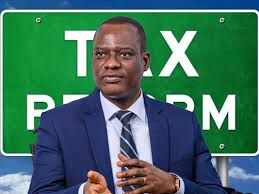Divya, who was raped by her husband on her wedding night at the age of 17, shared her harrowing experience—an all-too-common story in India, made possible by a horrifying colonial-era legal loophole.

“I told him I have never had sex and asked if we could take it slowly and try to understand it,” said Divya, now 19. “He said, ‘No, the first night is very important for us men.'”
He then slapped her hard, tore off her clothes, and forced himself on her.
After her arranged wedding in 2022, she endured 19 months of sexual and physical abuse.
“If I was hurt, it was invisible to him,” said Divya, whose name has been changed to protect her identity. “He used to have sex with me ruthlessly.”
According to the government’s latest National Family Health Survey, 6% of married women aged 18-49 report spousal sexual violence. In a country as populous as India, this means more than 10 million women have been sexually victimized by their husbands.
The survey also revealed that nearly 18% of married women feel they cannot refuse if their husbands want sex, and 11% believe a husband is justified in beating his wife if she refuses.
‘Victorian Mentality’
Under India’s inherited British-era penal code, an exception clause states that “sexual acts by a man with his wife, the wife not being under fifteen years of age, is not rape.”
India introduced a new penal code on Monday, but the exception clause remains, although it raises the minimum age at which a man can rape his wife to 18.
Lawyer Karuna Nundy is challenging this clause. Representing the All India Democratic Women’s Association rights group at the Supreme Court, Nundy condemned the clause as “colonialism from a Victorian mentality.” She holds a “fervent hope” for change, pointing out that more than 50 nations have outlawed marital rape.
Chief Justice D. Y. Chandrachud called it an “important issue” this year. However, the decade-long case has seen painfully slow progress. In May 2022, a two-judge bench in the Delhi High Court issued a split verdict.
Read also:
- 90 Day Fiancé’ Star Shekinah Garner Defends Fiancé for Sleeping with 2,500 Women
- Court Dismisses Nnamdi Kanu’s N1bn Suit Against FG
- Tonto Dikeh Gifts Uche Maduagwu a Plot of Land in Lagos, Actor Overjoyed
- Customs Seize Arms and Ammunition Valued at N2 Billion from Turkey
- Paulo Okoye Opens Up About His True Self Amidst Feud with VeryDarkMan
- Japa: Outrage as UK-based Driver Remains on FG Payroll
- Joke Silva, Olu Jacobs Spotted Relaxing at Ikoyi Club Following Death Rumor
- NAF Helicopter Crashes in Kaduna
- Toyin Abraham Allegedly Arrests Troll Who Wished Her Son Harm
- Iyabo Ojo Fires Back at Seun Kuti, Vows Legal Action Against Verydarkman Over N65M Claim
- Tolanibaj reveals how Wizkid’s fans sent her death threats for defending Don Jazzy
- Police Clarifies: VeryDarkMan Was Invited, Not Arrested
- Colombia vs Costa Rica Highlights: COL 3-0 CRC, Copa America 2024
- Vinicius Jr Shines as Brazil Triumph 4-1 over Paraguay in Copa America
- Those Criticizing Me for Not Covering My Head in Mecca Are Ignorant — Oluwo
- Criticism Follows Angela Okorie’s Outfit at Mr. Ibu’s Funeral
- NEMA Welcomes 103 Nigerians Deported from Turkey
- Peller’s Reaction Goes Viral After Olamide Gifts Him N5M
- Tolanibaj Seeks Love and Laments Being Single



